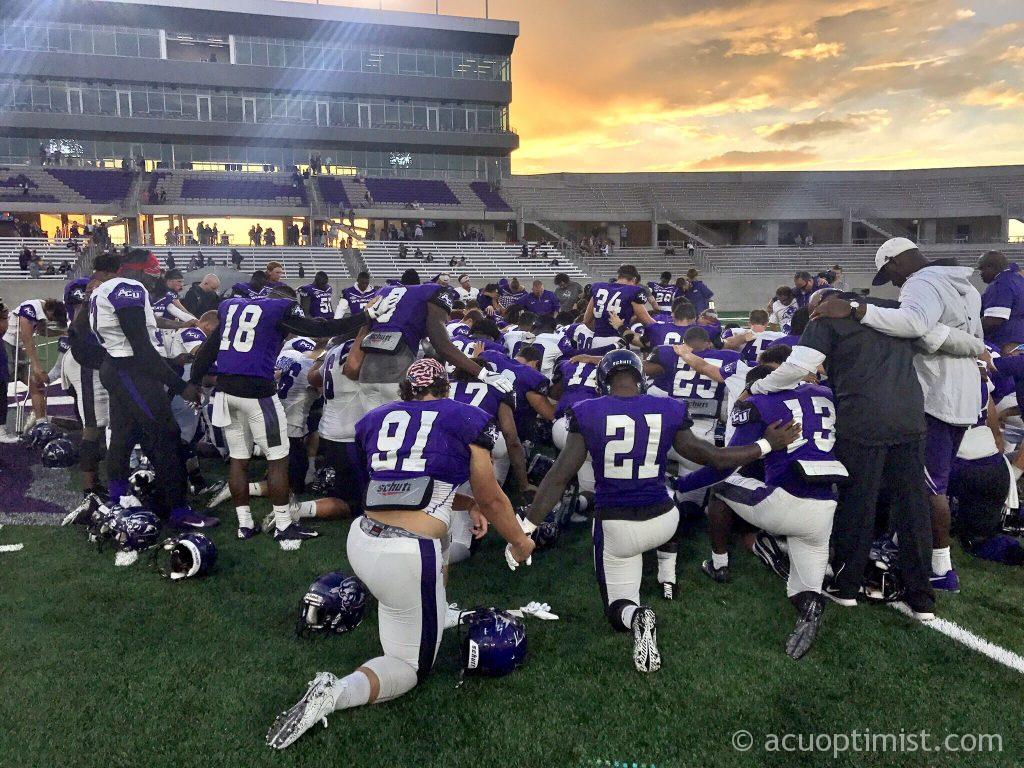When the Wildcats began the transition to Div. 1 in 2013, the university knew new expenses would come with the recognition. But with the football program operating budget $250,000 lower than the median of the Southland Conference playing the same level of competition wouldn’t cut it. That’s where guarantee games come in.
Football is not the only sport to book guarantee games, but it most certainly has the most to gain. Just this year alone, the program earned $650,000 for two guarantee games against Mountain West competition.
Early on in the transition period, it was enough to play the likes of New Mexico State, Georgia Southern and Troy, where the program made as much as $210,000 for its matchup with Troy. But as the Wildcats venture deeper into the Div. 1 era and expenses increase, the values of the game have to as well.
“We don’t get $350,000 right in our pocket,” director of athletics Lee De Leon said. “It’s a big part of our revenue plans on the annual basis, but we also have to generate revenue through other sources like ticket sales, fundraising, sponsorships and merchandise and concessions and everything else we do. So it’s a big number but our goals and expectations is to generate between two and three million dollars per year in revenue, so it’s not the entire number either.
The Wildcats have played four Mountain West teams since 2015 and received between $325,000 and $350,000 for each of those games. The 2018 season will mark the programs transition from Mountain West guarantee games to Big-12 guarantee games, when the team travels to Waco to take on Baylor. De Leon said that game will pay between $375,000 and $400,000. A road trip to Kansas State in 2022 and two trips to Texas Tech in 2024 and 2026 is also expected to pay as much.
When ACU adds SEC competition in the likes of Mississippi State in 2019 and Texas A&M in 2020, De Leon said the program will get paid a maximum of $500,000 in for those games. But as many college football fans know it’s not just the income helping with set the operating budget that makes these high-profile games so appealing. De Leon said it gives the university national visibility and players get excited for these games.
“We get to play in front of huge crowds, we get to be on T.V., and we get to go to a different part of the country that may or may not have ever heard about Abilene Christian University,” De Leon said. “So it’s tremendous exposure for the entire university not just the football team.”
For many of the FCS or smaller FBS games in these games, it’s also a chance to prove something.
“The great thing about games like those is it gives a chance for us smaller schools to go and experience the big game atmosphere while also giving us a chance to prove we can play up to that level,” senior linebacker Sam Denmark said. “It is huge when a smaller school goes and beats an FBS team.”
And that’s exactly what happened earlier this season when Troy was paid $985,000 to play LSU, and the Trojans came away with 24-21 victory over the Tigers. With FBS programs allowed 85 scholarships and FCS just 63, these games give the “underdogs” something to play for.
“You’re guys are going to get fired up to play on the big stage to play against the bigger teams,” De Leon said. “And those bigger teams often overlook the smaller guys like us, so it gives you the opportunity for an upset and everyone loves to cheer for the upset. And it’s just a necessary part of being an Div. 1 FCS school.”
De Leon also said that booking these types of games can be informal and a result of text conversation, or it can take two years like the two-game series against Texas Tech. But at the end of the day, when the game is played, these games and this aspect of college football is a big reason why FCS schools and smaller FBS schools can compete at the highest level.

